 W
WThis article lists the Ottoman military governors of Belgrade Fortress from the establishment of the autonomous Principality of Serbia in 1817, after the Second Serbian Uprising, until the withdrawal of Ottoman military garrison from Belgrade Fortress in 1867, simultaneously with the withdrawal of other remaining Ottoman garrisons from Serbian fortresses.
 W
WAbaza Mehmed Pasha was a statesman and military commander of the Ottoman Empire, the namesake of the Abaza rebellion. He was the beylerbey of the Bosnia Eyalet in 1628–1631. He was executed by sultan Murat IV in 1634.
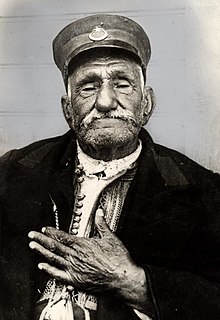 W
WZaro Aga was a Kurdish man who claimed to be one of the longest-living humans ever. He claimed birth between 1776 and 1777, and died on 29 June 1934 in Istanbul, Turkey. He was allegedly aged 157 when he died, and thus claimed to be one of the longest-living humans ever.
 W
WAhmed Niyazi Bey, , was an Ottoman revolutionary, who was the bey of the Resne area in the late 19th and early 20th centuries. An ethnic Albanian, Niyazi was one of the heroes of the 1908 Young Turk Revolution and of suppressing the 1909 Ottoman countercoup as he played leading roles in both events. Niyazi is also known for the Saraj, a French-style estate he built in Resne.
 W
WMahmud Pasha Angelović was the Grand Vizier of the Ottoman Empire from 1456 to 1466 and again from 1472 to 1474, who also wrote Persian and Turkish poems under the pseudonym Adni.
 W
WBekir Fikri (1882–1914), was an Ottoman revolutionary that participated in the Young Turk Revolution (1908) and fought with distinction during the Balkan Wars (1912-1913).
 W
WJózef Zachariasz Bem was a Polish engineer and general, an Ottoman pasha and a national hero of Poland and Hungary, and a figure intertwined with other European patriotic movements. Like Tadeusz Kościuszko and Jan Henryk Dąbrowski, Bem fought outside Poland's borders anywhere his leadership and military skills were needed.
 W
WEvrenos or Evrenuz was an Ottoman military commander, with an unlikely long-lived career and lifetime. He served as a general under Süleyman Pasha, Murad I, Bayezid I, Süleyman Çelebi and Mehmed I.
 W
WEyüp Sabri, Ohrili Eyüp Sabri (1876-1950) known as Eyüp Sabri Akgöl after the 1934 Surname Law, was an Ottoman-Albanian revolutionary and one of the leaders of the Young Turk Revolution (1908).
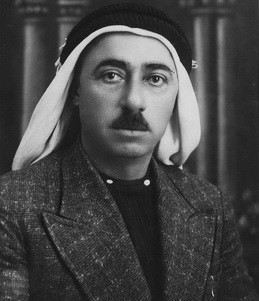 W
WAbd al-Rahim al-Hajj Muhammad, also known by his kunya Abu Kamal, was a prominent Palestinian Arab commander of rebel forces during the 1936–39 Arab revolt against British Mandate rule and increased Jewish settlement in Palestine. Most of his activities were based in the areas of Tulkarm, Nablus and Jenin. In September 1938, he became the official General Commander of the Revolt, although he shared the post in rotation with Arif Abd al-Raziq. In February 1939, al-Hajj Muhammad was given sole title to the post by the revolt's political leadership, but was killed the following month in a firefight with British forces.
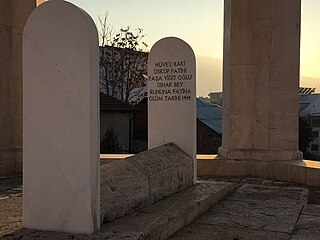 W
WIshak Bey or Ishak-Beg was an Ottoman governor and soldier, the sanjakbey of Üsküb from 1415 to 1439.
 W
Wİsmail Hakkı Okday (1881–1977) was an Ottoman military commander, who participated in the First Balkan War.
 W
WAtıf Kamçıl, also known as Atif Bey, Atif Efendi (1880–1947) was an Ottoman revolutionary and Turkish politician.
 W
WHamza Kastrioti was a 15th-century Albanian nobleman. He was the nephew of George Kastrioti Skanderbeg. Probably born in Ottoman territory, after the death of his father he was raised by Skanderbeg, who took him in his military expeditions. After the Battle of Niš he deserted Ottoman troops together with his uncle Skanderbeg, converted to Christianity and changed his name to Branilo. He supported Skanderbeg's uprising and was the vice captain of Skanderbeg's troops when they captured Kruja in 1443.
 W
WKıbrıslı Mehmed Emin Pasha was an Ottoman civil servant and statesman of Turkish Cypriot origin, who served at the top post of Grand Vizier during three different times under the reign of the sultan Abdülmecid I.
 W
WQazim Koculi was an Albanian politician of the early 20th century and one-day acting Prime Minister of Albania. He was also the principal military commander of the Albanian forces during the Vlora War in 1920. He was honored by the president with the title "Kalores i Urdhrit te Skenderbeut" in August 2020.
 W
WKučuk-Alija was a janissary, mutesellim of Kragujevac and one of four Dahiyas who controlled the Sanjak of Smederevo in the period between 15 December 1801 and the beginning of the First Serbian Uprising in Spring 1804. He was a brother of Sali Aga, a mutesellim of Rudnik Ottoman nahiyah at the beginning of 19th century.
 W
WImrahor Ilyas Bey was an Ottoman military commander and governor of Albanian origin, who served sultan Bayezid II. He married the daughter of sultan Mehmet II and founded the town of Korçë in the 15th century.
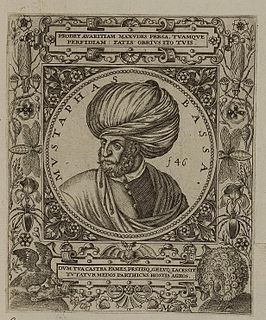 W
WLala Mustafa Pasha, also known by the additional epithet Kara, was an Ottoman and Bosnian general and Grand Vizier from the Sanjak of Bosnia.
 W
WMehmet Nadir was a Turkish mathematician and educator.
 W
WRadu III the Fair, Radu III the Handsome or Radu III the Beautiful, also known by his Turkish name Radu Bey, was the younger brother of Vlad III and Prince of the principality of Wallachia. They were both sons of Vlad II Dracul and his wife, Princess Cneajna of Moldavia. In addition to Vlad III, Radu also had two older siblings, Mircea II and Vlad Călugărul, both of whom would also briefly rule Wallachia.
 W
WRexhep Pasha Mati was an Ottoman-Albanian Marshal, governor and war minister.
 W
WRüstem Pasha was an Ottoman statesman who served as the Grand Vizier of sultan Suleiman the Magnificent. Rüstem Pasha is also known as Damat Rüstem Pasha as a result of his marriage to the sultan's daughter, Mihrimah Sultan. He is known as one of the most influential and successful grand viziers of the Ottoman Empire.
 W
WAhmed Ali Pasha, better known as "Şeker" Ahmed Pasha, was an Ottoman painter, soldier and government official. His nickname "Şeker" meant "sugar" in Turkish, which he earned due to his very easy-going nature.
 W
WAli Khulqi Alsharairi is Ali bin Hussein Alsharairi was one of the first Jordanian politicians. As an experienced military man and a politician, he contributed significantly to the establishment of the Emirate of Transjordan.
 W
WShemsi Pasha (1846-1908) was an Ottoman-Albanian General.
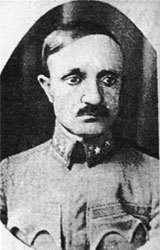 W
WLieutenant Colonel Ali Shefqet Shkupi, also known as Ali Shefqet Bey, was the first Chief of Supreme Staff of the Albanian Army bearing the functions of the Supreme Commander in the Albanian Government of Ismail Qemal Vlora.
 W
WGjergj Kastrioti, known as Skanderbeg, was an Albanian nobleman and military commander who led a rebellion against the Ottoman Empire in what is today Albania, North Macedonia, Greece, Kosovo, Montenegro and Serbia.
 W
WHasan Zati Sungur was an internationally recognized Turkish stage magician.
 W
WAbdul Aziz Yamulki was the son of Mustafa Yamulki, nephew of Said Pasha Kurd and Kurd Ahmet Izzet Pasha and a cousin of Şerif Pasha and Kurd Fuad Pasha.